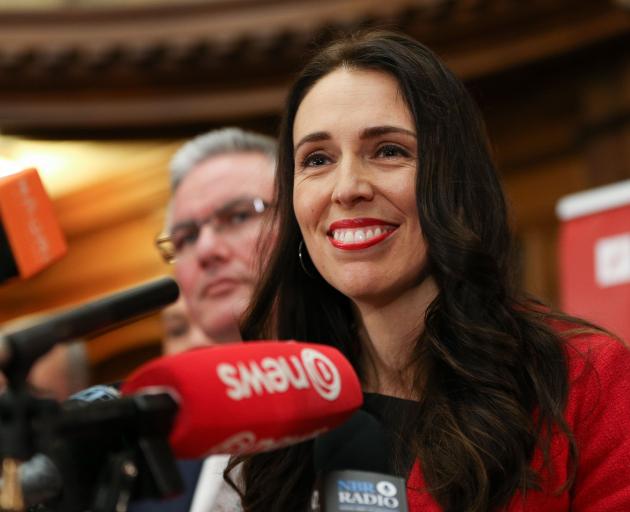
Ms Ardern got the job yesterday after Andrew Little stepped down in the face of dire poll results - a potentially risky move for the party, which has been punished for instability after going through five leadership changes in nine years.
It will pit the 37-year old against the experience and track record of Prime Minister Bill English, but Labour is relying on Ms Ardern attracting young or uninterested voters, as well as drawing Labour's old voters back from National, the Greens and New Zealand First
- Selection review urged
- Battler prefers background role
- Leader needs to prove herself: prof
- English sees problems for Ardern
- Maori Party makes offer
- Ardern: a real breath of fresh air
Ms Ardern said yesterday she was not worried about footing it with Mr English in election debates, saying while she expected to be tested, she was willing to pit her own leadership style against his.
"He's a seasoned politician. He's spent, obviously, a significant amount of time in hefty roles like finance and he's built credibility in those roles,'' she said.
"My job will be to challenge the vision he has for New Zealand and the vision he is presenting about New Zealand. I expect I will be tested but you should be tested in a leadership role.''

Mr English was careful not to dismiss Ms Ardern, saying it was important to respect the Leader of the Opposition.
He expected Ms Ardern would be skilled at debating.
"But it's going to be the contest of ideas more than personalities which matter in a head-to-head debate.
"We always respect the Leader of the Opposition. She has the possibility after the election to be the prime minister; therefore, we will be working hard to win that battle of ideas.''
Ms Ardern will take 72 hours to do a stocktake of Labour's campaign plan and indicated some policy changes were afoot.
She said while policies in areas such as health, housing and education were already in line with core Labour values such as fairness, "there are some areas I feel we can amplify that even more''.
She will have to deal with coalition partners.
Part of Labour's polling woes have been put down to Green Party co-leader Metiria Turei's admission of welfare fraud, drawing Labour voters either to the Greens in sympathy or to NZ First in disgust.
Ms Ardern refused to discuss Ms Turei's confession or whether she believed the Green Party was eating into Labour's vote.
"I see that as a distraction to our own policies and ideas. So, going forward, I want to be talking about Labour's agenda rather than speaking about the impact another party has had on ours.''
When asked how she would approach NZ First leader Winston Peters, Ms Ardern simply joked that she enjoyed single malt - one of Mr Peters' favourite drinks.
Labour’s leadership woes since 2008
• November 8, 2008 − Labour’s longest-serving leader Helen Clark resigns on election night following general election defeat
• November 11, 2008 − Long-time minister and senior party member Phil Goff takes the reins
• November, 2011 − Labour loses more ground at the election (down to 27.5%) and Mr Goff announces he will stand down
• December, 2011 − Labour’s caucus elects former United Nations staff member David Shearer ahead of David Cunliffe
• August, 2013 − Mr Shearer resigns as Labour struggles to gain traction, sitting at about 31% in the polls
• September, 2013 − Under new voting rules, Mr Cunliffe is elected leader over Grant Robertson and Shane Jones, but only gets 32% of the caucus vote
• September 20, 2014 − Labour suffers its worst general election result since 1922, coming away with less than 24.7% of the vote
• September 27, 2014 − Mr Cunliffe resigns, only to jump back into the leadership contest against Andrew Little, David Parker, and Mr Robertson
• November, 2014 − Mr Little is elected leader due to overwhelming support by union affiliates
• December 5, 2016 − Prime Minister John Key resigns, having seen off four Labour leaders
• July 31, 2017 − Two polls show Labour’s support is about 24% − with less than two months to the election − and Mr Little admits he's considered resigning
• August 1, 2017 − The party’s caucus meets and Mr Little pulls out of media appearances in preparation, amid speculation he will step down.
- By Claire Trevett












